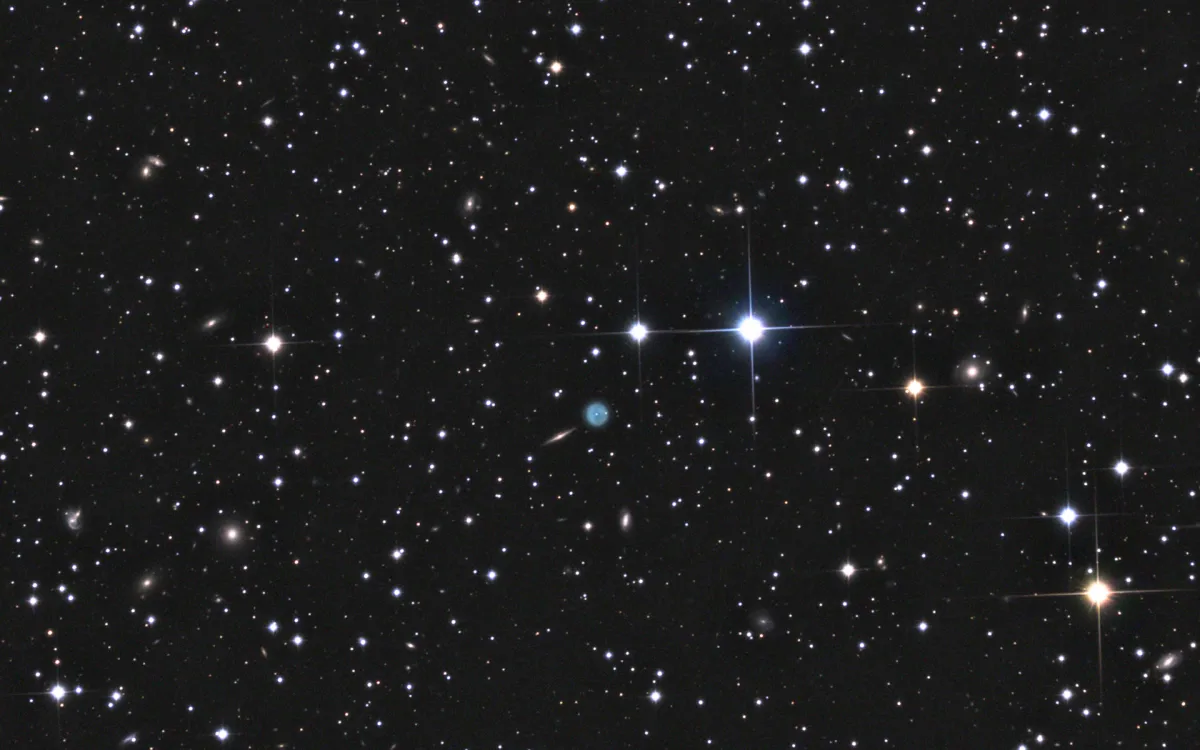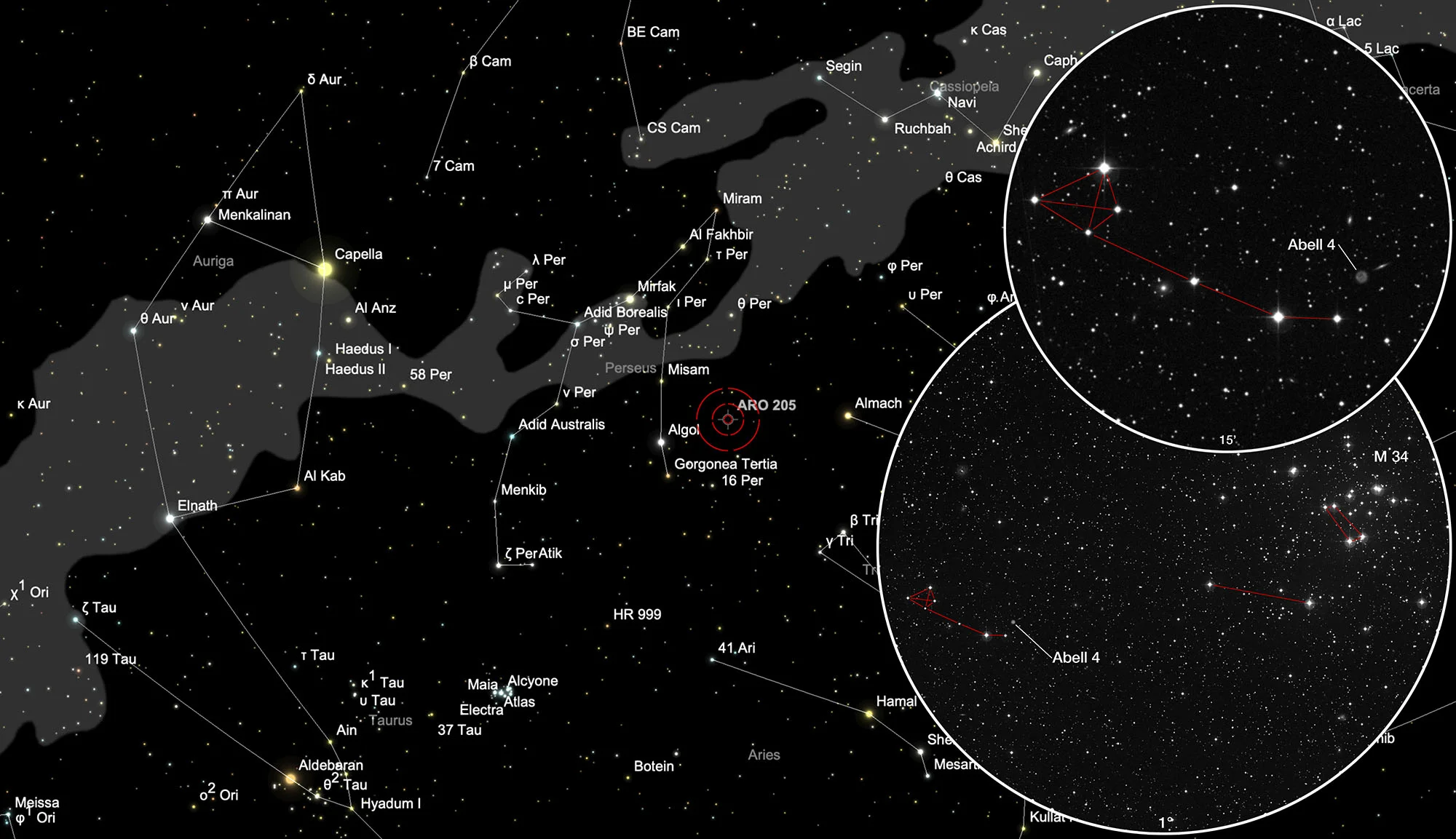Planetary Nebula Abell 4

History
The planetary nebula Abell 4 (PN A66 4, PK 144-15.1) was discovered in 1964 by the American astronomer George Ogden Abell on the photo plates of the «Palomar Observatory Sky Survey» (POSS). Most of these 86 PNs discovered on the POSS photo plates are large and have a low surface brightness, which suggests that their stage of development is advanced. Abell described the PN as a homogeneous disk with a diameter of 20". [332]
Physical Properties
The PN is located at a distance of 5621 parsecs, which corresponds to around 18,300 light years. The apparent brightness in the B filter is given as 15.6 mag. [145]
| Designations | PN G144.3-15.5: A 4, PK 144-15.1, ARO 205, VV' 13 |
| Right Ascension (J2000.0) | 02h 45m 26s |
| Declination (J2000.0) | +42° 32' 36" |
| Dimensions | 20." (optical) |
| C-Star Designations | AG82 15 |
| C-Star Magnitude | B: 19.9 |
| Discoverer | ABELL 1964 |
The weak edge-on galaxy 2MFGC 2191 is located about 45 arc seconds next to the PN. The apparent brightness in the 2MASS JHK filter is: J 13.4 mag, H 12.5 mag, K 12.1 mag. [145]
| Name | 2MFGC 2191 |
| Object Type | Galaxy |
| Right Ascension (J2000.0) | 02h 45m 20s |
| Declination (J2000.0) | +42° 33' 26" |
| Angular size | 0.437' × 0.131' |
| Magnitudes | G 21.108011; J 13.432; H 12.587; K 12.073 |
| Identifiers | 2MASX J02452000+4233270; 2MFGC 2191; Gaia DR3 337112777634966400; LEDA 2201333 |
Finder Chart
The planetary nebula Abell 4 is located in the constellation Perseus and is circumpolar for Central Europe. On 6 November it is in opposition to the Sun and crosses the meridian at local midnight. The best observation time is July to April. The open star cluster Messier 34 serves as a guide. Almost 1° to the east of this is a small diamond-shaped formation made up of four little stars (dragon square). If you hop back three asterisks from there in the direction of M 34, you will get to Abell 4.
Visual Observation
400 mm Aperture: The position of Abell 4 can be clearly determined using the location card with a 21 mm Ethos eyepiece (85x). However, the PN itself does not remain visible. Only at a higher magnification with a 9 mm Nagler (200x) does the planetary nebula reveal itself and is with indirect vision only barely recognizable as a faint, round nebula about half the size of Jupiter. Nothing can be seen of the galaxy 2MFGC 2191 right next to it. — Taurus T400 f/4.5 Dobsonian, Hasliberg Reuti, 6. 11. 2021, Bernd Nies
762 mm Aperture: The PN is clearly and directly visible in the 13 mm Ethos eyepiece (193x). Only the core of the galaxy right next to it can be seen. One thinks to see the central star of the PN flashing briefly from time to time, but that was probably more of an imagination. This could not be confirmed at a higher magnification in the 9 mm Nagler (280x). Eventually that was due to the rather modest seeing at night. — 30" f/3.3 Slipstream Dobsonian, Hasliberg Reuti, 6. 11. 2021, Bernd Nies
